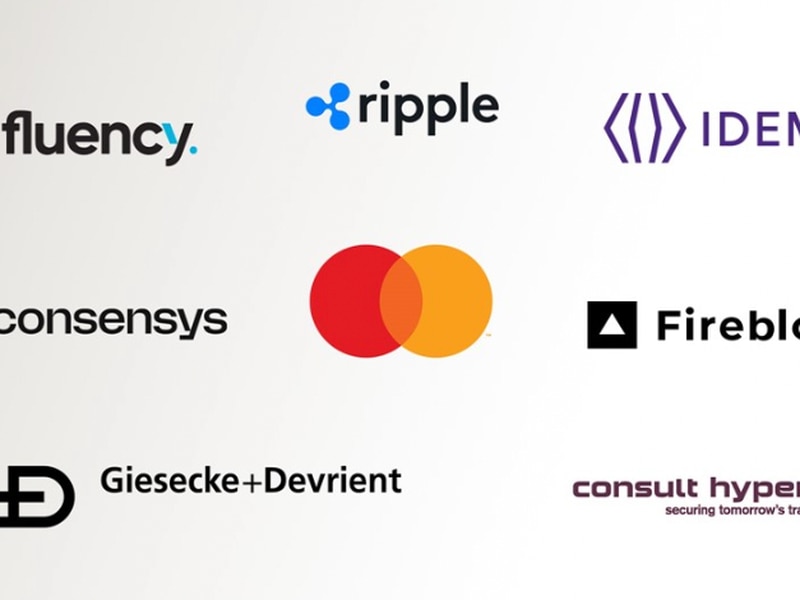Bitcoin Cash ‘Halved,’ DeFi Gets a Boost and Bisq Halts Trading
The halving is coming. Are you ready? Image via Shutterstock
Bitcoin Cash ‘Halved,’ DeFi Gets a Boost and Bisq Halts Trading
Bitcoin cash, the splinter cryptocurrency that forked from the Bitcoin blockchain in 2017, underwent its first programmable halving.
Like other proof-of-work blockchains, bitcoin cash (BCH) manages its monetary supply by slowly printing mining rewards to machines that secure its network by solving complicated mathematical problems. As of Wednesday morning, miners will receive half the amount of BCH for essentially the same amount of work. In the past, these “halving events” proceeded cryptocurrency price rallies, but industry experts have their doubts a bull run is in store for Bitcoin Cash.
You’re reading Blockchain Bites, the daily roundup of the most pivotal stories in blockchain and crypto news, and why they’re significant. You can subscribe to this and all of CoinDesk’s newsletters here. Here’s the story:
Top Story
Halving effects
- Bitcoin cash – the blockchain that forked off bitcoin (BTC) in 2017 – reduced its block rewards by half, hitting some miner’s gross revenues hard. The mining difficulty and hash rate on bitcoin cash – a measure of how much miner power is participating on the network – was already on a downward trend in the run up to the halving, following a drop in the splinter currency’s price.
- The bitcoin cash event foreshadows the halving scheduled for the Bitcoin network in about 35 days, which is 26 times larger than BCH in terms of market capitalization, as well as Bitcoin SV’s halving expected this Friday. Halvings have been an important variable in cryptocurrency price increases in the past, though developers on these break-off chains expect some miners to defect for more lucrative opportunities. Roger Ver, BCH’s project steward, said it will be a “non-event.”
DeFiers
- TD Ameritrade, Cumberland, CMT Digital, DV Trading and Jump Trading, as well as venture capital firm Volt Capital and the DeFi startup Compound, joined forces in the Chicago DeFi Alliance (CDA). Announced Wednesday, the new group will focus on providing advisory services to select crypto startups working on decentralized finance initiatives.
- Tezos is getting a “wrapped” version of bitcoin, bringing BTC’s liquidity and the hopes of a nascent decentralized financial ecosystem to its proof-of-stake blockchain. Bitcoin Association Switzerland, Tezos Foundation and multiple partners will issue the token, called tzBTC. The news comes on the heels of a tBTC “bridge” between Ethereum and Bitcoin announced last week.
Programmable money
- The Bank of England (BoE) thinks private cryptocurrencies may have a role in the future of money. Although the BoE has already said bitcoin and other similar cryptocurrencies don’t meet the necessary criteria to be considered money, CBDC analyst Ben Dyson said, “that doesn’t mean that it’s impossible for somebody to improve upon that technology and create something that much better fulfills the qualities of money.”
- Banking services provider Sila has raised $7.7 million to build out a platform that allows entrepreneurs to easily launch programmable, USD-pegged stablecoins.
Exchanges
- Account holders at the now-defunct Cryptopia exchange are entitled to their balances still held in trust, a judge has ruled. This decision places the interests of exchange users over the 37 creditors and 90 shareholders also vying for their portion of the remaining assets.
- Decentralized or non-custodial cryptocurrency exchange Bisq has halted trading due to a “critical security vulnerability.” While users can override the block, the exchange “highly discourages” traders from doing so. (The Block)
Cash deals
- SoFi will acquire payment processor Galileo in a $1.2 billion deal. (The Block)
- HDR Global Trading, the operator of cryptocurrency exchange BitMEX, has granted $400,000 over four years to nonprofit security organization Shadowserver Foundation, to bolster internet security. (The Block)
Coronavirus challengers
- Jack Dorsey will place $1 billion, what he says is roughly 28 percent of his wealth, into a limited liability company he started called Start Small to fight the coronavirus. (TechCrunch)
- Bay Area researchers are turning to waste water to track COVID-19 outbreaks in cities. (Wired)
Market Intel
Liquidity
Bid-ask spreads on major exchanges widened dramatically in March, following coronavirus-led market turmoil. The bid-ask spread is an indicator of market liquidity, measuring the gap between the highest price a buyer would pay and the lowest price a seller would accept.
Halving hope
Halvings are not always bullish, and many experts think bitcoin cash has a rough road ahead to retain price and mining capacity. “The conventional crypto wisdom that halvings magically induce a bull run such that the real USD value of miner revenue does not cut in half is naive wishful thinking, encouraging investors to be fooled by correlation/causation,” said Zach Resnick, managing partner at Unbound Capital.

Halving report
In May of 2020, bitcoin is expected to undergo its third “halving,” a programmed supply reduction that has in the past coincided with a strong run-up in the bitcoin price. In this paper, we explain what the bitcoin halving is, why it matters and why the market is so focused on this event.
The Breakdown
Market rally
Epsilon Theory’s Ben Hunt and NLW discuss why markets are rallying as we enter what promises to be the deadliest week of the virus in the US yet. The question is: Is the rally in both stocks and crypto premature?
Who Won #CryptoTwitter?

Blockchain Bites is CoinDesk’s daily news roundup of the most important stories in blockchain tech from here and around the web. You can subscribe here.
Disclosure Read More
The leader in blockchain news, CoinDesk is a media outlet that strives for the highest journalistic standards and abides by a strict set of editorial policies. CoinDesk is an independent operating subsidiary of Digital Currency Group, which invests in cryptocurrencies and blockchain startups.









